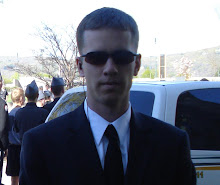See this post for background if you don't know what they heck I'm talking about below.
----
No leader exists without subordinates, and no organization exists without a mission. Here lies the third tenet in the compassion cornerstone- caring for your mission. Not only must a leader know the tasks to which they are assigned, but they must also take the time and make the effort to know, understand, and internalize the mission. The leader must buy into the mission of the organization they belong to before they will perform it at an acceptable (or higher) level. I would like to lean on my experiences in teaching backcountry hiking and camping skills to Boy Scouts at Philmont, a national Boy Scout camp in the Rocky Mountains of New Mexico. Philmont is home to not only a Boy Scout camp, it also hosts some of the most rugged terrain, unpredictable and extreme weather, as well as the challenge of transforming 10 or 12 individuals into a functioning team.
The first part in caring for your mission is knowing your mission. As a Ranger at Philmont, it was my job to welcome, prepare, and teach a group of scouts the skills necessary to survive a ten day backpacking expedition. My time was short- two and a half days to train them up on everything. This was my immediate mission, very easy to see, understand, justify, and execute. The skills and techniques were all established, so passing them on was not a difficult task. The mission was important because their survival literally depended on it. If the scouts were not competent in performing first aid, proficient in navigating with a map and compass, and knowledgeable in commonly encountered emergencies and how to react accordingly, their lives and the lives of their crew were in danger. I cared about my mission as a trainer because of it’s sheer weight and importance.
Other goals of the program were to produce a functioning team, where each member identified with the crew leader and with the needs of the group. Confidence was built by entrusting each member with daily tasks- navigating, pace setting, and cooking. One of the concepts the Rangers were instructed on was the stages of group development. Philmont used different terminology, but the concept is exactly the same. It was our job to help the group get through the forming stage in base camp, the storming stage on their first one or two days in the backcountry, and into the norming and performing stages by the time we left them on the third day. If a group progressed into the norming stage, they had most likely recognized the crew leader as their leader, developed a sense of cohesion, and performed the techniques taught to them without having to be reminded. The mission in this case was to make sure that the group not only understood the essential tasks and could perform them, but also to help them progress through the stages of development so that their time was not only more enjoyable but also safer and more fruitful. Compassion is again a factor. I cared that the scouts I was assigned to were adequately trained and prepared to face the worst of circumstances. I cared not only because their safety was involved, but also because the whole trip is a developmental experience in which they get to practice their own leadership, perhaps for the first time, and bond with other scouts. The hope is that they take their learned skills and leadership experience and transport it to their home and transfer it to their friends and other scouts.
The seemingly simple idea of compassion is what drives me as a leader. Its execution is not always so easy however. It takes a good sense of self and a caring attitude for yourself, your subordinates, and your mission. These are not attitudes and ideas that happen overnight, but rather something that can and should be practiced and reflected upon. The utilization of a mentor, the third leg in the Leader Growth Model, completes the learning process.
Subscribe to:
Post Comments (Atom)

No comments:
Post a Comment